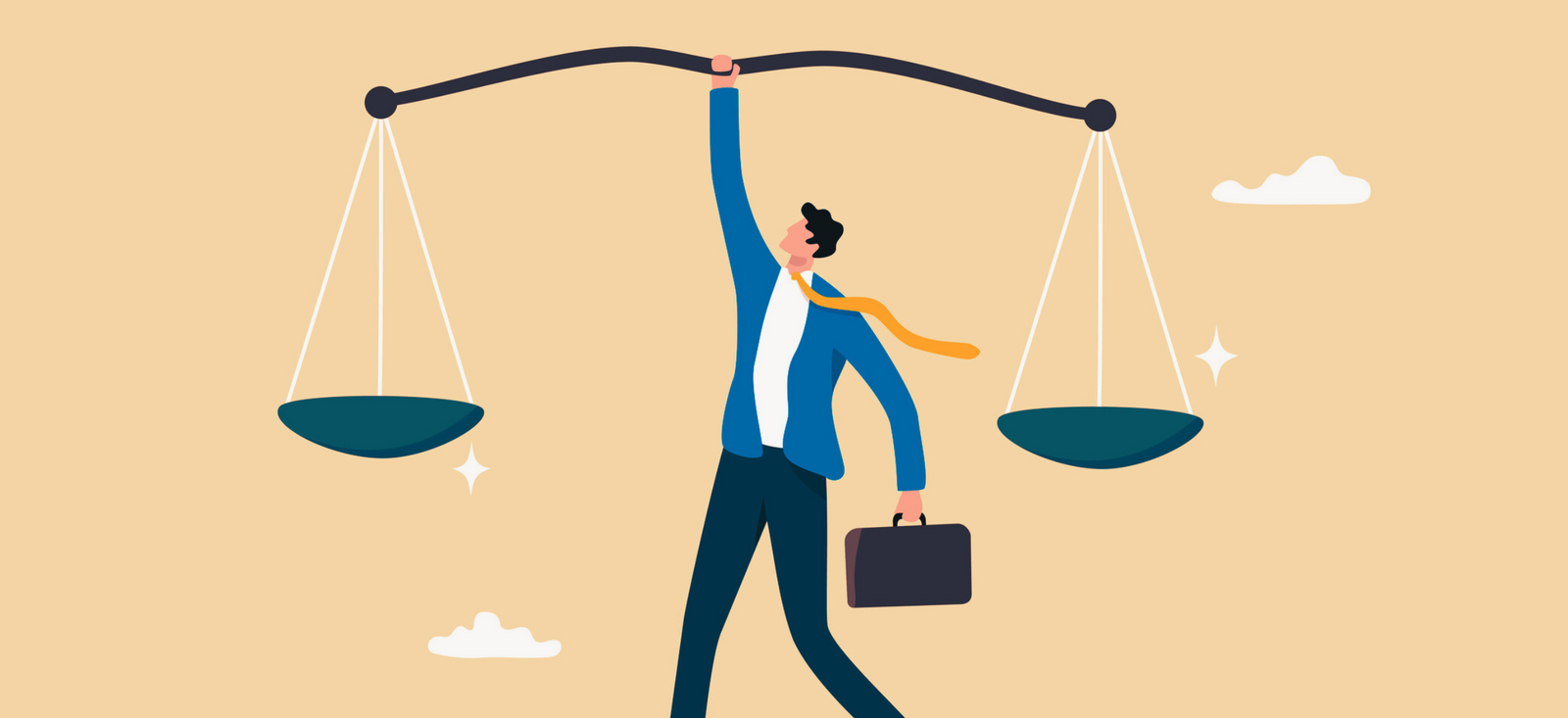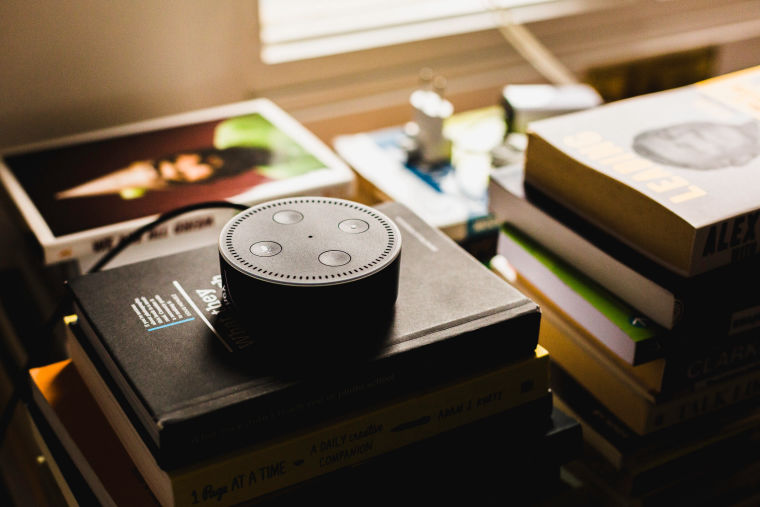The moral case for and against market research
What is the moral case for what we do as market researchers? It's a question that demands more than just a casual response. Turns out, there are cases both for and against the morality of market research.

What is the moral case for what we do? Or, to paraphrase a popular meme, “Are we the baddies?" A junior colleague asked me this in casual conversation, and it deserves much more than a casual response.
We work in an industry where we ask questions for a living, and we know that powerful questions are themselves of great value. They pressure us to think deeply and demand a thoughtful response.
The question itself is revealing in two ways, first for its infrequency and second as a signal of generational value shift. I’ve worked in research for many years, and she was the first to ask me this question. We are a product of our times, and this question is another example of evolving generational attitudes, with Millennials and Gen Z more focused on aligning their values with their workplace values. But why could we be “the baddies"? And what evidence is there that we aren't?
Arguments Against the Morality of Market Research
There are three foundational moral arguments against market research. Each of these arguments has been with us since market research and advertising blossomed in the post-WWII consumer economy boom.
Each argument has been levelled at advertising and market research. This makes sense because the two industries grew together.
The moral arguments against market research are (1) enabling manipulation of the individual and their purchase behaviour, (2) reinforcing an addictive desire for more, and (3) supporting an unsustainable consumer economy that is harmful to the planet.
Against: Enabling Manipulation
Does market research enable businesses to manipulate an individual’s wants? Undoubtedly, research-sharpened marketing in a vacuum can shape an individual’s wants. Behavioural economics suggests that our ability to choose can be influenced, and we can all be “nudged.”
We learn more about the brain, dopamine triggers, and System 1 and System 2 each year. Larger data sets, more behavioural data, and ultimately, the n of one will raise significant social concerns about privacy and manipulation.
Charges of manipulation are nothing new to the industry. Edward Bernays, the American pioneer of modern marketing, public relations, and public opinion research, discussed these issues brazenly in his books Crystallizing Public Opinion (1923) and Propaganda (1928). Bernays, credited with increasing cigarette sales to women by associating them with a thinness aesthetic, was also the creator of the American breakfast of bacon and eggs. Any critique of manipulation ultimately regresses to Bernays.
Against: Supporting Consumerism and the Addiction to More
Does market research help to reinforce an addictive desire for more? The ancients, the stoics, most world religions, and the 10th commandment warn against an insatiable desire for more and where it leads. Using research to Identify unmet needs and sharpen marketing appeals could feed a destructive desire for more. Many of us in consumer societies are bogged down, drowning in our stuff. Approximately 5.8% of Americans are addicted shoppers, and global estimates of compulsive buyers range from 1%-8%.
Against: Supporting Unsustainable Consumption
Does market research support an unsustainable consumer economy? Most estimates suggest that by late July each year, we have consumed more ecological resources than the earth can regenerate in that year. Market research is designed to increase consumption of a product or service. Does this increase global consumption of scarce resources? That seems likely.
But, the counterargument is that this assumes that global values and capitalism are fixed instead of dynamic and evolving. Market research could support a sustainable consumer economy with sustainable consumer products. The question assumes that the market economy and market research cannot grow to reflect social concerns or environmental realities. Many sustainable products have now been brought to market successfully. The market economy and market research could simply adapt to cultural and values shifts.
Arguments For the Morality of Market Research
There are three strong arguments for the morality of market research. These are that (1) the existence of market research assumes the importance of the individual and a quasi-democratic social contract where elites must listen to and strive to deliver value to consumers, (2) the existence of market research assumes progress in that we can identify needs, meet those needs, and improve our products, and (3) market research optimizes scarce resources by helping to market the best products most efficiently and compellingly.
For: Market Research Assumes the Power of the Individual and an Implicit Social Contract
If individuals had no agency, choice, or power, market research wouldn't be needed. The industry's existence assumes that individuals have choice and agency. It also assumes that there is a rough social contract between institutions and individuals and that this social contract exists in the market and society. Even most non-democratic regimes survey their citizens. The entire industry is based on the idea that businesses and institutions are better when they listen to the people.
The counter charge is that market research enables consumer manipulation. But, this charge breaks down quickly when we consider that:
Individual consumers ultimately have free will, agency, and the ability to choose
In almost every circumstance, an individual can choose between (a) non-consumption and (b) a wide range of competitive products.
In the modern world, the consumer has access to a considerable amount of product information and third-party reviews.
The charge of manipulation assumes that the consumer is a passive receiver of marketing messages and that marketers have a monopoly on information flow. Neither is true. Research can sharpen marketing appeals, but the customer is ultimately king. And, on a lighter note, years of experience have taught me that no amount of great research can improve the sale of a really bad product or idea.
For: Market Research Assumes Progress Can Be Made
A second implicit assumption within market research is that progress can be made in creating new products and improving existing ones. Market research assumes that we can identify and meet unmet needs in ways that enrich the consumer's life. It also assumes that we can incrementally improve a product by listening to consumers, testing it, and developing it with their guidance. Readers will immediately recall case studies, especially in the personal care space, where entirely new categories have been developed to satisfy unmet consumer needs.
The counterargument is that this process is the engine of consumerism, addicting consumers to more and locking us in an unsustainable consumption cycle that is bad for the planet.
For: Market Research Efficiently Brings the Best Products to Consumers
Finally, at its best, market research ensures that:
Companies bring the best versions of their products to market
These are marketed to target consumers in the most efficient and compelling way
Without market research, there would be less consumer-product fit, and these products would be marketed in a more scattershot manner. This saves firms and the economy enormous amounts of money, shifting those resources to better use.
Food for Thought
What is the moral case for what we do?
This is a question worth asking and a discussion worth having.
Individual assessments of the industry's morality are likely to fall back on a person's foundational views on free will and the general morality of the market economy.
One piece of the discussion should centre on how the research process transforms the researcher. We are paid to listen without judgment, respond with unconditional positive regard, and see the world through the eyes of others. This compels us to empathize with a wide and diverse spectrum of people. And this process teaches us to understand, to respect, and ultimately to love our neighbour.


